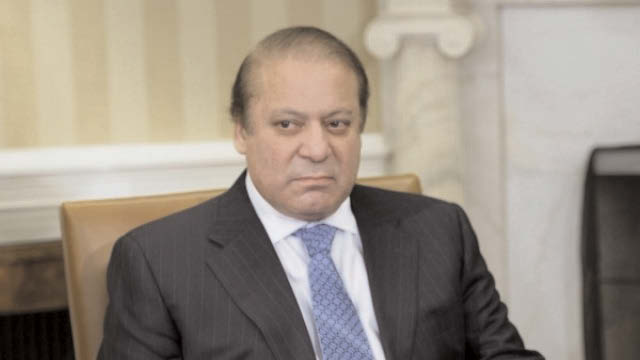
NEW DELHI (TIP):Underscoring India‘simportance in Britain’sevolving foreign policypriorities, British PrimeMinister David Cameron wasin India this week for asecond time since assumingoffice in 2010.Though his visit toJallianwala Bagh has evokedmixed reactions in India, hebecame the first servingBritish Prime Minister topay his respects at the site,describing the massacre as “a deeplyshameful event in British history”. He maywell have done this for domestic politicalconsumption.
Nonetheless, its symbolicimportance should not be underestimated.Cameron is trying to take U.K.-India ties toa new level of maturity and India would dowell to respond adequately.Economic relations were the focus of thisvisit. Accompanying the British PrimeMinister was a large business delegationfrom the U.K. Cameron emphasized thatboth New Delhi and London should removebarriers to cooperation and make it easierto invest in each other.Signaling to Indian investors hisgovernment’s seriousness about the U.K.-India ‘special relationship’, Cameron hasdecided to introduce a same-day visaservice for Indian businesses waiting toinvest in the U.K. He also suggested thatthere is no limit to the number of Indianstudents who can study at Britishuniversities, and to the number that couldstay on and work.
Seeking partnerships
Disenchanted with its specialrelationship with the U.S. and disillusionedwith the overly bureaucratic EU, Britain isnow looking to Asia to develop newpartnerships. The aim is to use Asia’seconomic dynamism to help Britain’s statusas a major global economy. The governmenthas decided to inject a “newcommercialism” into the work of theForeign Office. British Foreign SecretaryWilliam Hague has been explicit about theuse of Foreign Office to drum up businessfor Britain, using the country’s extensivediplomatic network to lift its economy.The Conservatives have been clear aboutIndia being a priority for the U.K. sinceCameron’s visit to India in 2006 as theleader of the opposition.
Mr. Cameron hadwritten fondly of India before his visit:”India is the world’s largest democracy, arapidly growing economy, a huge potentialtrading partner, a diverse society with astrong culture of pluralism and a keyregional player – a force for stability in atroubled part of the world.” He hadsuggested that though Britain’srelationship with India “goes deep”, it”should go deeper”.India and Britain had forged a ‘strategicpartnership’ during former British PrimeMinister Tony Blair’s visit to India in 2005but it remained a partnership only in name.The Conservatives were keen on giving it anew momentum.
The U.K. is the largestEuropean investor in India and India is thesecond largest investor in the U.K. Indianstudents are the second largest group inBritain. There are significant historical,linguistic and cultural ties that remainuntapped.But the Labor government’s India legacywas very complex and Mr. Cameron’sgovernment needed great diplomaticfinesse to manage the challenges. This wasparticularly true of the issue of Kashmirwhere the Labor government could not helpbut irritate New Delhi. As late as 2009,former Foreign Secretary David Milibandwas hectoring India that the resolution ofthe Kashmir dispute was essential toending extremism in South Asia.
Traditional approach dropped
Cameron’s government made a seriouseffort to jettison the traditional Britishapproach towards the subcontinent in sofar as it has decided to deal with India as arising power, not merely as a South Asianentity that needs to be seen through theprism of Pakistan. Cameron made all theright noises in India during his first trip in2010. He warned Pakistan againstpromoting any “export of terror”, whetherto India or elsewhere, and said it must notbe allowed to “look both ways”. He hasproposed a close security partnership withIndia and underlined that Britain, likeIndia, was determined that groups like theTaliban, the Haqqani network or Lashkar-e-Taiba should not be allowed to launchattacks on Indian and British citizens inIndia or in Britain.
Despite causing adiplomatic row with Pakistan and DavidMiliband calling him “loudmouth”, Mr.Cameron stuck to his comments.More significantly, the British PrimeMinister also rejected any role for hiscountry in the India-Pakistan dispute.In this new phase of India-U.K. ties,economics and trade are likely to dominate.Mr. Cameron has managed to changeIndian perceptions about Britain to aconsiderable extent. If even after this theU.K.-India ties fail to take off, it won’t be forlack of trying by the British PrimeMinister.





Be the first to comment